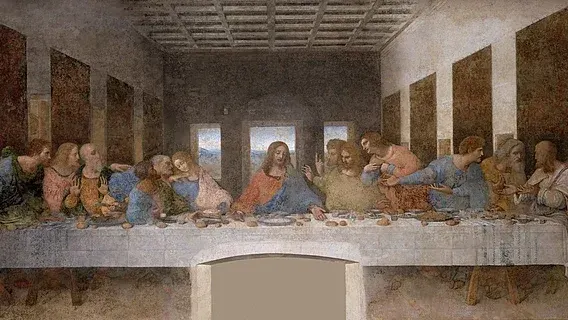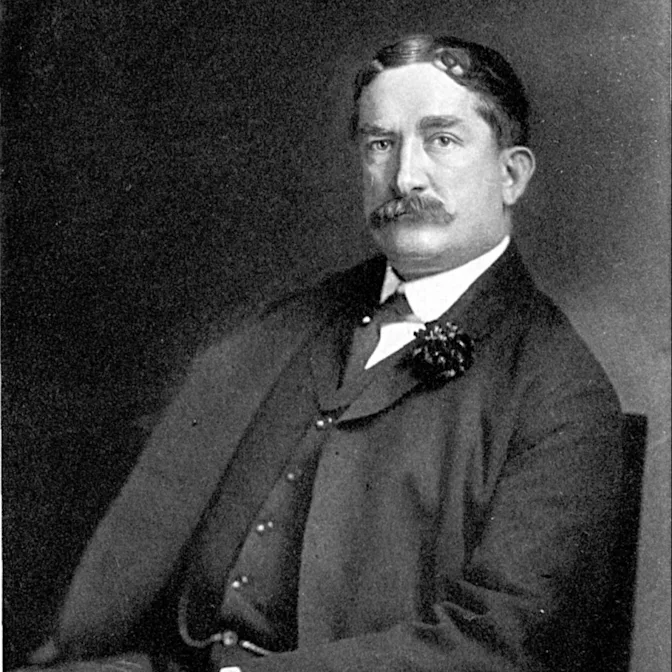
Is Friday the 13th Cursed?
For centuries, Friday the 13th has been considered an unlucky day, one filled with fear and superstition. But what makes this specific day so frightening, and where did the ominous reputation come from? The combination of the number 13 and the day Friday carries a long history of bad luck, and over time, that fear has only grown.
The Unlucky Number 13
The fear of the number 13, known as triskaidekaphobia, has ancient roots in both religious and cultural history. In Christianity, Judas Iscariot, the disciple who betrayed Jesus, was the 13th guest at the Last Supper, fueling a long-standing superstition that having 13 guests at a table invites death. This association between betrayal and the number 13 has endured for centuries.
 The Last Supper by Leonardo da Vinci. Public domain.
The Last Supper by Leonardo da Vinci. Public domain.
Many cultures have since adopted a general unease with the number 13. For example, in Norse mythology, a dinner of 12 gods was disrupted when Loki, the trickster god, showed up uninvited as the 13th guest, leading to chaos and death. Whether because of religious beliefs or old legends, the number 13 has remained a symbol of misfortune throughout time.
Why Friday?
While 13 may already have a bad reputation, Friday has its own biblical baggage. In Christianity, Friday was the day of Jesus' crucifixion, the day Adam gave Eve the treacherous apple, and the day Cain murdered his brother Abel – giving the day an inherently somber and unlucky tone. Over time, Friday became seen as a day to avoid risk, thus amplifying its association with danger and bad luck when combined with the number 13.
The Rise of Friday the 13th
Though the superstitions around Fridays and the number 13 have existed separately for centuries, the two weren't formally linked until relatively recently. It wasn't until the late 19th century that people started to view Friday the 13th as a singularly unlucky day. According to historians, this may have started with the 1907 publication of Thomas W. Lawson's novel "Friday, the Thirteenth," in which a stockbroker uses the day's bad reputation to create chaos on Wall Street.
 Thomas W. Lawson, author of "Friday, the Thirteeth" novel. Public domain.
Thomas W. Lawson, author of "Friday, the Thirteeth" novel. Public domain.
Friday the 13th really entered pop culture in the 20th century. With horror movies like the "Friday the 13th" film series, which began in 1980, the date became synonymous with danger, death, and misfortune. The combination of the unlucky number 13, the somber tone of Friday, and the media frenzy surrounding the date cemented Friday the 13th as one of the most dreaded days of the year.
Tragic Events That Shaped the Fear of Friday the 13th
Friday the 13th has long been associated with misfortune, and several historical and tragic events have contributed to its ominous reputation. One of the earliest infamous events occurred on Friday, Oct. 13, 1307, when King Philip IV of France ordered the arrest of hundreds of Knights Templar, a powerful military and religious order. Though officially charged with various crimes, the real motive was the king's desire to seize their wealth. Many of the Templars were later executed, and some believe this event is the root of the Friday the 13th superstition, though the exact origins remain unclear.
In more recent history, several disasters have taken place on this unlucky day, Friday the 13th:
- September 1940: German bombing of Buckingham Palace
- March 1964: The brutal murder of Kitty Genovese in Queens, New York
- November 1970: the cyclone that killed more than 300,000 people in Bangladesh
- October 1972: the disappearance of a Chilean Air Force plane in the Andes
- September 1996: the death of rapper Tupac Shakur
- January 2012: crash of the Costa Concordia cruise ship off the coast of Italy, killing 30 people
A Modern Fear
The fear of Friday the 13th still impacts behavior today. Some airlines skip the 13th row on their planes, and many buildings omit the 13th floor entirely (of course, even if you call it something different, it's still the 13th floor). While many dismiss these actions as mere superstition, the association of death and misfortune with this date has deep historical roots. Nonetheless, the number 13 and Friday have ingrained themselves deeply into our collective consciousness, making Friday the 13th a frightful day.
References: Friday the 13th | Why Are We So Scared of Friday the 13th?























